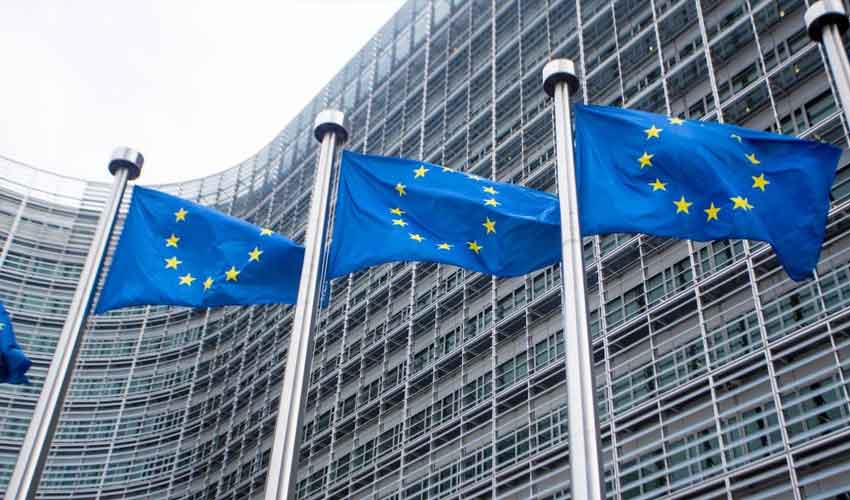The European Lotteries (EL), representing national lotteries across Europe, has issued a firm call to action—urging the European Union to remove references to online gambling and betting services from the proposed Digital Services Act (DSA).
Introduced in December 2020, the DSA seeks to modernize the EU’s 20-year-old e-Commerce Directive, setting new rules for how digital services—including content hosting, marketplaces, and platforms—operate across the Union. However, the EL warns that an explicit reference to online gambling in the draft legislation risks undermining national regulatory authority and encouraging illegal gambling activity.
In a formal letter to the EU Council, the EL argues that the inclusion of online gambling in Recital 29 of the draft DSA sends the wrong message. It implies that national-level restrictions on gambling may violate EU law, which contradicts long-standing case law from the Court of Justice of the European Union (CJEU).
European Lotteries advocate for the continued autonomy of Member States in regulating gambling. Given the sector’s unique risks—including addiction, fraud, and money laundering—each state must retain its right to enforce tailored consumer protection and anti-crime measures. The EL warns that weakening national powers could embolden unlicensed operators and compromise public safety.
The EU Council and Parliament are urged to delete the reference to online gambling in the final DSA text. Legal clarity, regulatory respect, and consumer safety depend on preserving the current framework that acknowledges gambling’s specific legal and social context.
Key Points
- Call for Exclusion: European Lotteries demand the removal of online gambling references from Recital 29 of the DSA.
- Respect for National Law: The EL argues that Member States’ restrictions on gambling are justified under EU law.
- Risk of Illegal Operators: Weakening national regulation could empower unlicensed platforms and harm consumers.
Why European Lotteries Oppose Gambling’s Inclusion in the DSA
The Digital Services Act is a sweeping legislative proposal intended to reshape the digital environment across the European Union. Yet, the European Lotteries organization believes that Recital 29 of the DSA threatens to overreach by referencing online gambling and betting services in the context of the freedom to provide services and establishment within the EU.
In its submission to the EU Council, EL emphasizes that this language “wrongly implies” national gambling laws may not comply with EU rules. However, multiple rulings by the CJEU affirm that restrictions on gambling can be justified when they serve public interest goals such as consumer protection, public order, and anti-fraud measures.
Arjan van ‘t Veer, Secretary General of European Lotteries, stated:
“The explicit mention of online gambling and betting services is out of place. It fails to acknowledge relevant case law and the nuanced nature of the gambling sector.”
Under the current e-Commerce Directive, gambling is already excluded from harmonized treatment. The DSA was drafted to uphold that exclusion, yet the inclusion of gambling in Recital 29 could reintroduce legal ambiguity.
Van ‘t Veer warns this oversight may invite challenges from unauthorized operators seeking to exploit EU free movement provisions. Such operators, often based in loosely regulated jurisdictions, can bypass local laws and expose vulnerable users to risks.
The EL asserts that only national governments can effectively manage gambling risks due to differences in culture, legal frameworks, and enforcement capabilities. Centralizing control at the EU level or suggesting uniformity through vague language could destabilize well-functioning national systems.
Despite the DSA aiming to respect the foundational principles of the e-Commerce Directive, the EL finds it “very unclear” why only the gambling sector is singled out—particularly when no other industry receives similar treatment in the legislation.
The European Lotteries’ plea to remove references to online gambling from the Digital Services Act underscores a broader tension between EU integration and national regulatory sovereignty. Gambling remains a sensitive and heavily regulated activity that varies significantly between countries. Forcing it under a one-size-fits-all digital framework could compromise years of jurisprudence and public safety progress.
As the DSA heads toward final negotiations, lawmakers must strike a balance between digital harmonization and respecting sector-specific legal frameworks. For gambling, that means letting Member States continue to tailor their rules—without interference or misinterpretation from generalized EU legislation.
Contact Szilaghi Consulting to Get Your Gaming License
Szilaghi Consulting has been providing services to the online and offline gambling industry for over 21 years. We have helped our clients to make the right choices, to realize their visions, to overcome obstacles, and, above all, to succeed. We offer transparency and efficiency and we are committed to always acting only in your interest.
Our experience in obtaining online and offline gambling licenses differentiates us from the competition. We cover all your needs, from the incorporation of the gambling company, the creation of fiscal and compliance structures, to obtaining the gambling license.
We invite you to schedule a consultation with us. We like to communicate with our customers, troubleshoot their problems, and offer solutions. We invite you to contact us today to discuss this with one of our agents. Let us help you take your business to the next level.


